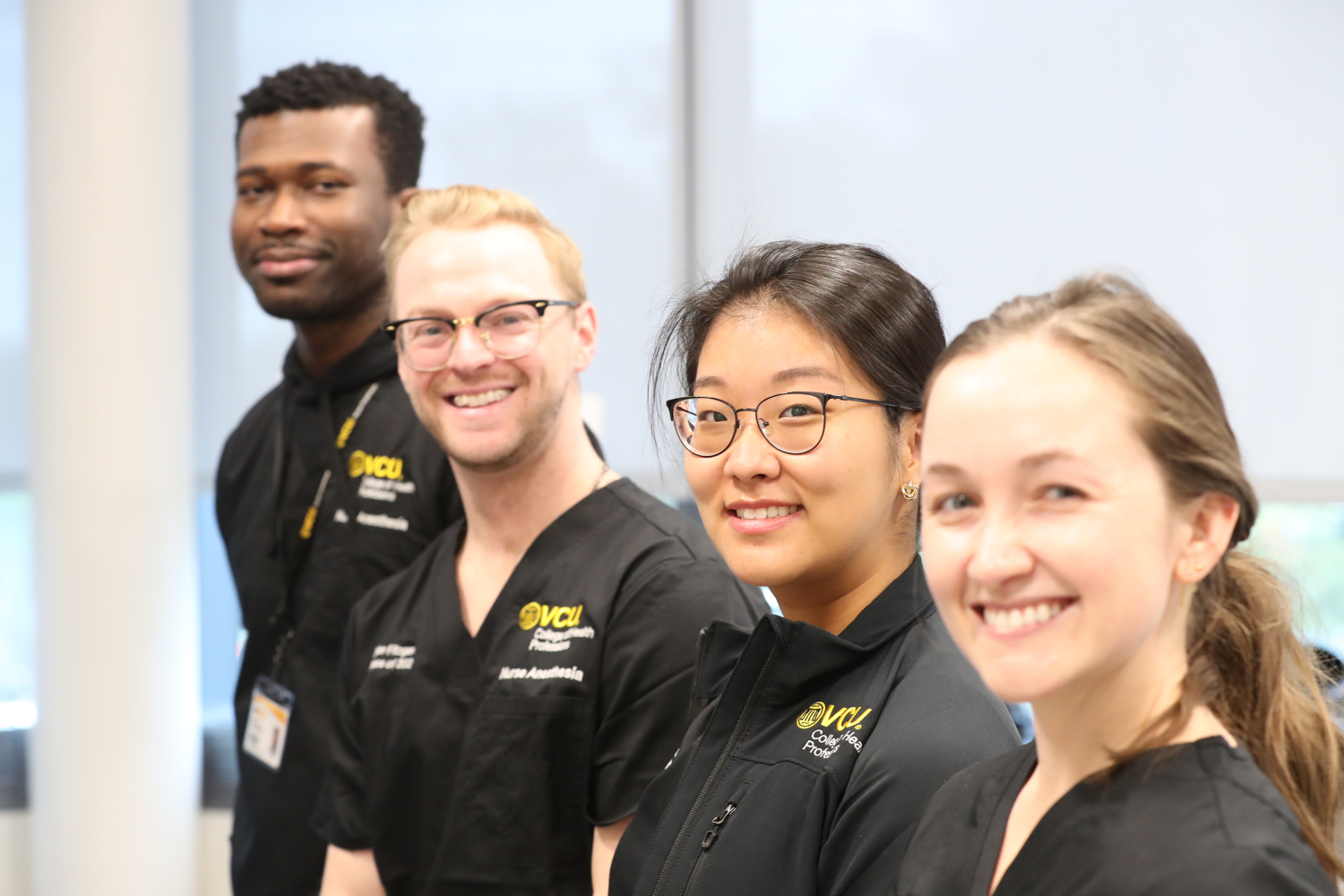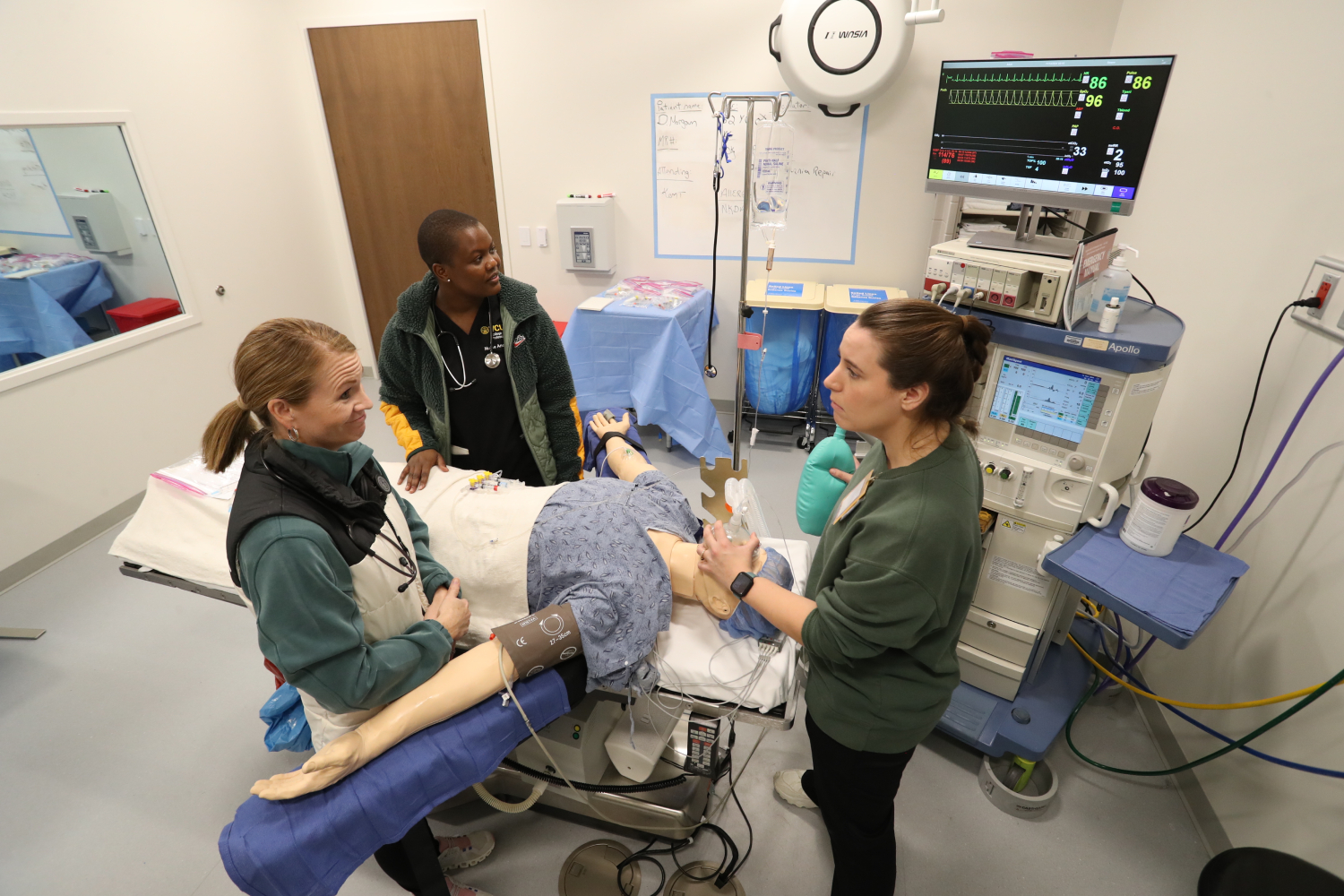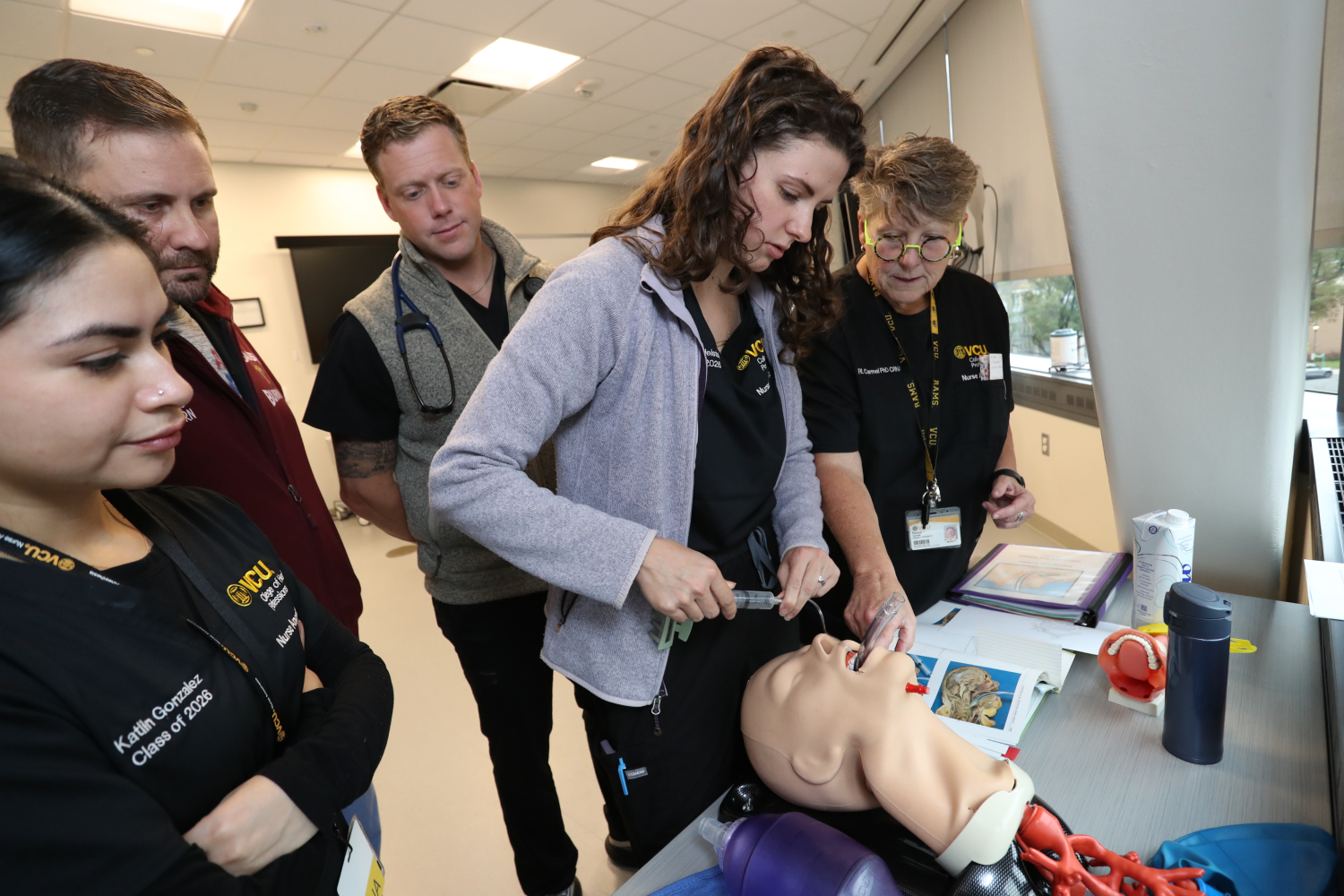Strength in numbers
Student success fuels growth of nurse anesthesia program
 VCU’s Department of Nurse Anesthesia has long been known for excellence. And now, the department is drawing larger pools of potential Doctor of Nurse Anesthesia Practice (DNAP) students, while maintaining the high performance outcomes that matter most.
VCU’s Department of Nurse Anesthesia has long been known for excellence. And now, the department is drawing larger pools of potential Doctor of Nurse Anesthesia Practice (DNAP) students, while maintaining the high performance outcomes that matter most.
“Our program continues to draw incredible interest,” said Nickie Damico, Ph.D., CRNA, Herbert T. Watson Endowed Professor and department chair. “We just completed another record-breaking admissions cycle with more than 540 completed applications for our entry-to-practice doctoral program.”
That demand drove hands-on enhancements in the admissions process, which started with adding live interviews to supplement a traditional asynchronous experience. Those one-on-one sessions also gave faculty more face time with candidates.
“We wanted to really get to know the people behind these incredibly strong applications,” Damico said. “And even with high numbers, we’re still seeing incredibly polished, prepared and committed candidates.”
She noted that the surge in high-caliber applicants stems from several recent updates to the admissions process, including a shift to the national NursingCAS system and stronger emphasis on academic performance and ICU nursing experience. “We also consistently hear from applicants that they chose VCU because our students and alumni speak so highly of the program,” Damico added.
This year, the program admitted 62 students, nearing its maximum capacity. At its Roanoke and Abingdon sites, the program witnessed enrollment increases of 20% and 10% respectively. Notably, about half of the incoming students will complete their training at distance learning sites, continuing to meet Virginia’s growing health care needs in rural and underserved communities where Certified Registered Nurse Anesthetists (CRNA) often are the only anesthesia providers.
Excellence by the numbers
Keeping pace with the program's growth is student performance. The Class of 2024 achieved a 98% first-time pass rate on the National Certification Examination (NCE), which is up from 84% the previous year and well above the national average.
“That 98% reflects our first-time pass rate, which is the gold standard for programs like ours,” Damico said. “We’re incredibly proud of our graduates, especially since we’ve been expanding enrollment at the same time.”
Several key changes are contributing to those gains. The program integrated the nationally recognized Apex Anesthesia Review platform, co-founded by VCU alum Danny Frasca, DNAP, into the curriculum, and this latest class was the first to use that across its three-year curriculum. The online platform is designed to help students integrate preparation for required board exams into their schedules.
Faculty members also raised benchmarks for practice exam performance and built in additional study support, including structured success plans for students who don’t meet initial targets.
“We’re now prescribing Apex content, requiring more on-campus review time and putting a stronger emphasis on readiness earlier in the program,” Damico said.
Simulating success
One of the most transformative investments has been in the simulation center, which has been instrumental in supporting students in going beyond developing technical skills to improving their planning and decision-making.

When clinical placement bottlenecks prevented second-year students from getting operating room time, the faculty saw an opportunity to keep building skills until students received OR assignments. That led to intensive simulation days with hands-on learning, case-based discussions and focused skills development
“What started as a necessity,” Damico said, “turned into something students now tell us has boosted their confidence and reduced stress in clinical transitions.”
The department now is working to enhance those experiences by formalizing this emerging curriculum growth and investing in faculty training. It also is pursuing national accreditation for the simulation center, and a newly built $1.5 million facility in Abingdon complements this priority, along with reflecting an ongoing commitment to rural regions.
“Simulation is a differentiator among nurse anesthesia programs,” Damico said. “We’ve always been strong in that area, but now we’re elevating it even further.”
Adapting to a changing profession
 Today’s incoming students reflect broader trends in health care. For example, more applicants today bring backgrounds in travel nursing. It’s a change Damico views as a strength.
Today’s incoming students reflect broader trends in health care. For example, more applicants today bring backgrounds in travel nursing. It’s a change Damico views as a strength.
“Travel nurses bring wider exposure to different ICUs, different patient populations and often leadership experience,” she said.
Additionally, applicants increasingly arrive with firsthand exposure to the profession, thanks in part to encouragement from professional organizations to attend state and national CRNA meetings. “That’s been a big shift,” Damico said. “We’re seeing more applicants who really understand the range of practice models available to CRNAs, and many are drawn to more independent practice settings.”
In 2021, VCU eliminated the GRE requirement to make applications more accessible. That move reflected a national shift toward broader admissions reviews. The program will continue to study the impact of that decision, but early results show that VCU remains a top choice for high-quality applicants.
At the same time, the department is navigating current challenges, as clinical placement remains the biggest barrier to further expansion. “We could grow even more if we had the sites, but it comes down to employment,” Damico said. “If graduates don’t stay at a hospital, the hospital won’t keep training students.”
That’s why retention – especially in rural and underserved regions, where graduates often transition from training into full-time jobs – is so crucial. Damico cited Ballad Health, anchoring in Johnson City and caring for residents across the Appalachian Highlands, as an example. “Facilities like that are investing in us because they see a return,” Damico said. “They know the students we train in those communities are likely to stay.”
New leadership, expanding vision
Damico recently transitioned from program director to department chair, overseeing both the DNAP and the newly approved Master of Science in Cardiovascular Perfusion, which will launch in January. Keith Pelletier, PhD, will lead the new program.
Becky Carmel, Ph.D., CRNA, a program alum and former director of clinical education, now serves as DNAP program director, with Crystal Hunnicutt, DNAP, adding assistant program director to her duties as director of southwest operations.
“We’re hiring again to support our growth,” Damico said. “We’re investing in people and programs to ensure we’re not just getting bigger – we’re getting better.”
And for patients across Virginia, especially in communities that have long lacked consistent access to care, that means more CRNAs ready to make a difference.
“When we can’t provide care, patients often don’t get it at all,” Damico said. “That’s why training and keeping our graduates in these communities matters so much.”
by Kyra Newman